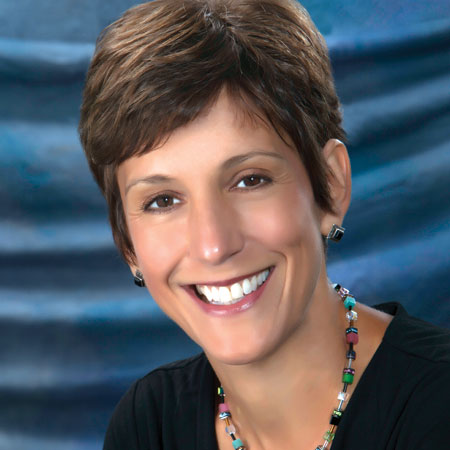Exec Chat: Johnson & Johnson Brings Together Physician Education Programs In The J&J Institute
Executive Summary
Johnson & Johnson recently launched the Johnson & Johnson Institute – a network of 26 physician training education centers, putting what was previously an unconnected set of regional and specialty-specific education programs into one connected system to better serve J&J device-users in all geographies. Medtech Insight talked about the Institute, and its place within the diversified health-care giant, with Diana Bacci-Walsh, VP for North America Education Solutions for Johnson & Johnson Medical Devices.
Johnson & Johnson recently launched the Johnson & Johnson Institute to bring together its diverse collection of physician training programs into one system that can meet physicians' training needs, almost anywhere at any time.
"The J&J Institute combines comprehensive global educational programs to harness the size, reach, resources and collective passion of Johnson & Johnson Family of Companies to enhance human health," the company said Nov. 2. The J&J Institute staff train clinicians around the world on a wide variety of clinical procedures with the latest training technology, including virtual reality simulations, as well as online and mobile training technology.
Diana Bacci-Walsh, the Vice President of North American Education Solutions for Johnson & Johnson Medical Devices, oversees the day-to-day operations of the Johnson & Johnson Institute in North America. In her role, she leads the Center of Excellence that includes Professional Education, Sales Training and Development, Stakeholder Engagement, Digital Education, and Clinical Simulation, and oversees strategic initiatives for J&J's Cardiovascular and Specialty Solutions, DePuy Synthes, and Ethicon businesses. She works with sales, marketing and strategic account teams to build education programs across North America.
Bacci-Walsh also supports product launches with new education programs and maintains partnerships with medical professional societies. And she is a member of J&J's North America Regional Leadership Team and the Academic Orthopedic Consortium, an organization of academic orthopedic departments.
Bacci-Walsh talked to Medtech Insight about the new Institute and how it fits into Johnson & Johnson's corporate-wide effort to adapt to the emerging value-based care environment.

Diana Bacci-Walsh, VP-North America Education Solutions, Johnson & Johnson Medical Devices
Johnson & Johnson
What we’ve done is come together and created these J&J Institutes such that, for example, if a surgeon needs training and wants to do a particular surgical procedure in the upcoming months, and may not be as familiar with our instrumentation or with a particular procedure, we can really customize the education and be available for that physician when he needs the training.
We’re really excited about this, because it not only allows us to really customize curricula, but it also allows us to take a more holistic approach to education.
For example, an orthopedic surgeon comes to one of our institutes and joins us for a total knee replacement course. We can ask that surgeon if he wants to invite his OR team as well. More and more we’re taking a team approach towards education, so he may want to invite his scrub tech or his PA. And what we can do is look at the procedure in total.
For example, when they make that initial cut in a surgery, we have products that help with blood management. While the surgeon may be focusing on the knee replacement, the PA can be thinking about what sutures he or she is going to use to close the incision. We can now take this more holistic approach because we have such depth and breadth of product.
We’re really excited about this, because it not only allows us to really customize curricula, but it also allows us to take a more holistic approach to education.
"We’re really excited about this, because it not only allows us to really customize curricula, but it also allows us to take a more holistic approach to education."
What we had in the past was we had [education programs] like the Ethicon Institute or we had a DePuy SynthesInstitute. And although we were all part of the same company, we didn’t act that way. And now we truly say, 'how can we help our customers best?'
"Although we were all part of the same company, we didn’t act that way. And now we truly say 'how can we help our customers best?'"
That’s one of our objectives, for sure. In addition, we have jnjinstitute.com, where we make available little snippets of videos. A surgeon in a rural area, let’s say, may not have done a procedure in a while, and he or she may want to refresh themselves around the approach or the procedure, so they may take a look at the video, to just refresh their memory. And that’s been a great way to really augment the hands-on training by using this interactive digital experience.
A surgeon who’s been in practice for a while may not have had that experience when they were a resident and fellow, so we provide them this opportunity to augment the education and expertise that they already have. We look at areas of need and decide if it is an area we need to focus. And of course, everything we do is driven by our credo.
From the editors of Clinica
